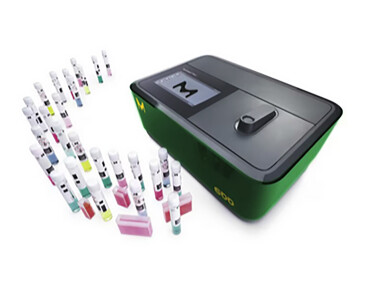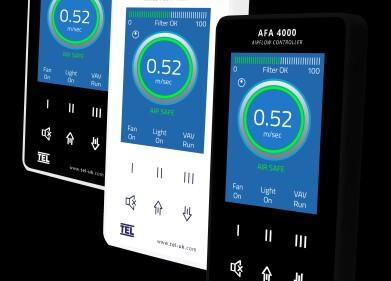Laboratory products
Troponin Test to Help Predict Heart Attack Risk Receives CE Mark
Sep 28 2018
Abbott have announced that its High Sensitive Troponin-I blood test is the first troponin test with CE Mark that can more accurately predict the chances of having a heart attack or other cardiac event potentially months to years in advance in people who otherwise appear healthy.
This life-changing technology has the potential to transform how doctors identify those at risk for developing heart disease because the diagnostic test uses a biomarker specific to the heart. A substantial body of research has shown that measuring a person's troponin levels using Abbott's High Sensitive Troponin-I test provides better predictive information for determining a person's chances of developing future heart disease when added to the current standard of care.
Abbott's ARCHITECT STAT High Sensitive Troponin-I blood test has been used in emergency rooms across Europe over the past five years to help physicians detect heart attacks faster and more accurately, particularly among women who often have lower troponin levels.
Because the High Sensitive Troponin-I test can detect very low levels of troponin, the test now can be used to determine cardiac risk in people with no reported symptoms of heart disease. Using this diagnostic test during the same blood draw of a routine health exam, doctors will be able to look at what's actually happening to the heart and better determine their patients' risk of developing heart disease, such as a heart attack or other cardiac event, in the future. With this added information, doctors can help ensure the correct treatment is given to people at high risk and prevent unnecessary testing, medication and costs for lower-risk patients.
In addition to more accurately determining a patient's cardiac risk, Abbott's High Sensitive Troponin-I test is designed so that biotin doesn't affect test results. The vitamin biotin is growing in popularity as a supplement to improve hair, skin and nails. Yet biotin may interfere with some lab tests, including cardiac ones, potentially leading to false positive or false negative results. Having an accurate picture of a patient's cardiac risk can help physicians ensure that each patient is getting the correct treatment.
Digital Edition
Lab Asia 31.6 Dec 2024
December 2024
Chromatography Articles - Sustainable chromatography: Embracing software for greener methods Mass Spectrometry & Spectroscopy Articles - Solving industry challenges for phosphorus containi...
View all digital editions
Events
Jan 22 2025 Tokyo, Japan
Jan 22 2025 Birmingham, UK
Jan 25 2025 San Diego, CA, USA
Jan 27 2025 Dubai, UAE
Jan 29 2025 Tokyo, Japan



















